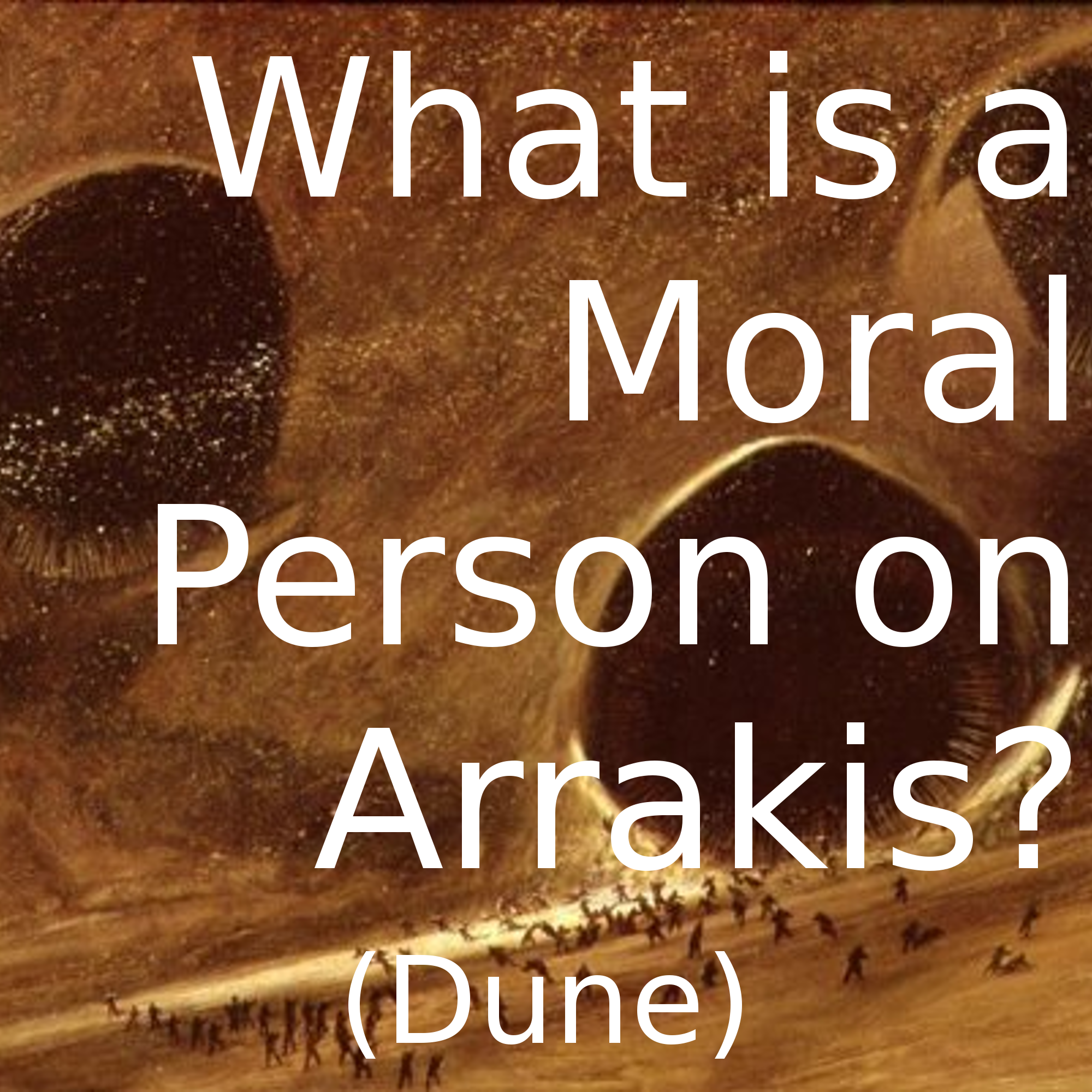What is a Moral Person on Arrakis? (Dune)
 This one has been a long time coming, I’m afraid, mostly because A) I took an extra week to get the book read, B) one recorded, I took my sweet-ass time getting the damn thing edited and C) this fucking election has taken basically all of my intellectual and creative energy over the last few weeks. Thankfully on the last, the election is now over, and all is back to something like normality, right?
This one has been a long time coming, I’m afraid, mostly because A) I took an extra week to get the book read, B) one recorded, I took my sweet-ass time getting the damn thing edited and C) this fucking election has taken basically all of my intellectual and creative energy over the last few weeks. Thankfully on the last, the election is now over, and all is back to something like normality, right?
Christ.
Anyway, in this episode James is back and we’re chatting Frank Herbert’s Dune. I know there was some question about whether we’d be talking about the whole series or any of the ancillary material, but the original novel is more than enough I think for a single podcast episode. If James is up for returning to this universe in the future, we might do supplemental bits, but that’s not on the agenda anytime soon.
Go give it a listen, if you like. If nothing else, an extended chat about the Great Houses of the Landsraad and the difficulties of resource allocation should completely distract us from the shitshow that 2016 has become. Or, you know, not.





November 20, 2016 @ 5:08 pm
Great conversation guys. I think it’s definitely worth (re)exploring the first two sequels – Dune Messiah and Children of Dune. They wrap the narrative up in a neater way than the denouement of the original novel, which you both, rightly, consider rushed and ill-judged. The others, including God Emperor are non -essential. I hope maybe you will discuss the movie and the TV mini series too at some point.
As to the cultural appropriation, It might have gone both ways. This may be apocryphal but apparently, as a student in Europe in the 1970s, Osama Bin Laden was a big SF geek and his favourite novel was Dune. One of the names Paul Atriedes takes in the book – Usul, the base of the pillar, translates into Arabic as ‘Al Khaida’.
November 30, 2016 @ 3:53 am
Just some late comments.
Taken by itself, without the sequels, this is a happy ending; the protagonist triumphs, overthrows the corrupt regime and institutes a new, better one. While becoming a magic man. It’s a very fairy tale solution; the source of all evils is people, eliminate them and you fix the problem.
With the sequels… more complicated.
I myself like to see Dune as an in-universe artifact which has an agenda, so it’s not fully the ‘true’ story of what happened; it’s pro-Atreides, pro-Muab’Dib propaganda. The Harkonnens weren’t really mutant freaks, but that’s how the winners want them to be remembered and the winner writes the history books.
But I also find the ending to be ironic because this book and later ones are full of quotes from Princess Irulan… who had reason to not present the kind of history Jessica hopes for at the end. And if you look at the quotes as a whole, she’s the one who in-universe usually shaped how Paul will be remembered.
(Though clearly the in-universe author of this had resources beyond just Irulan’s accounts.)